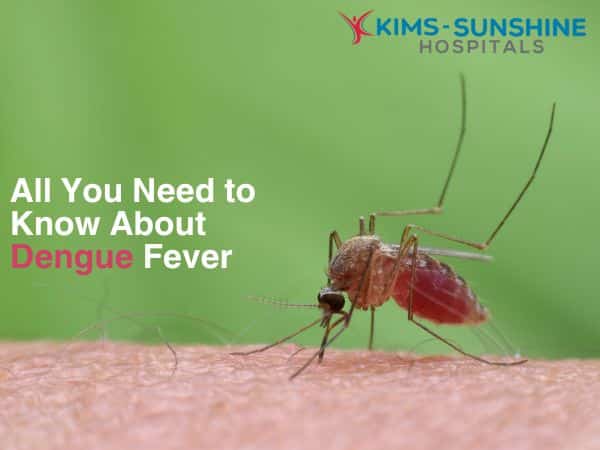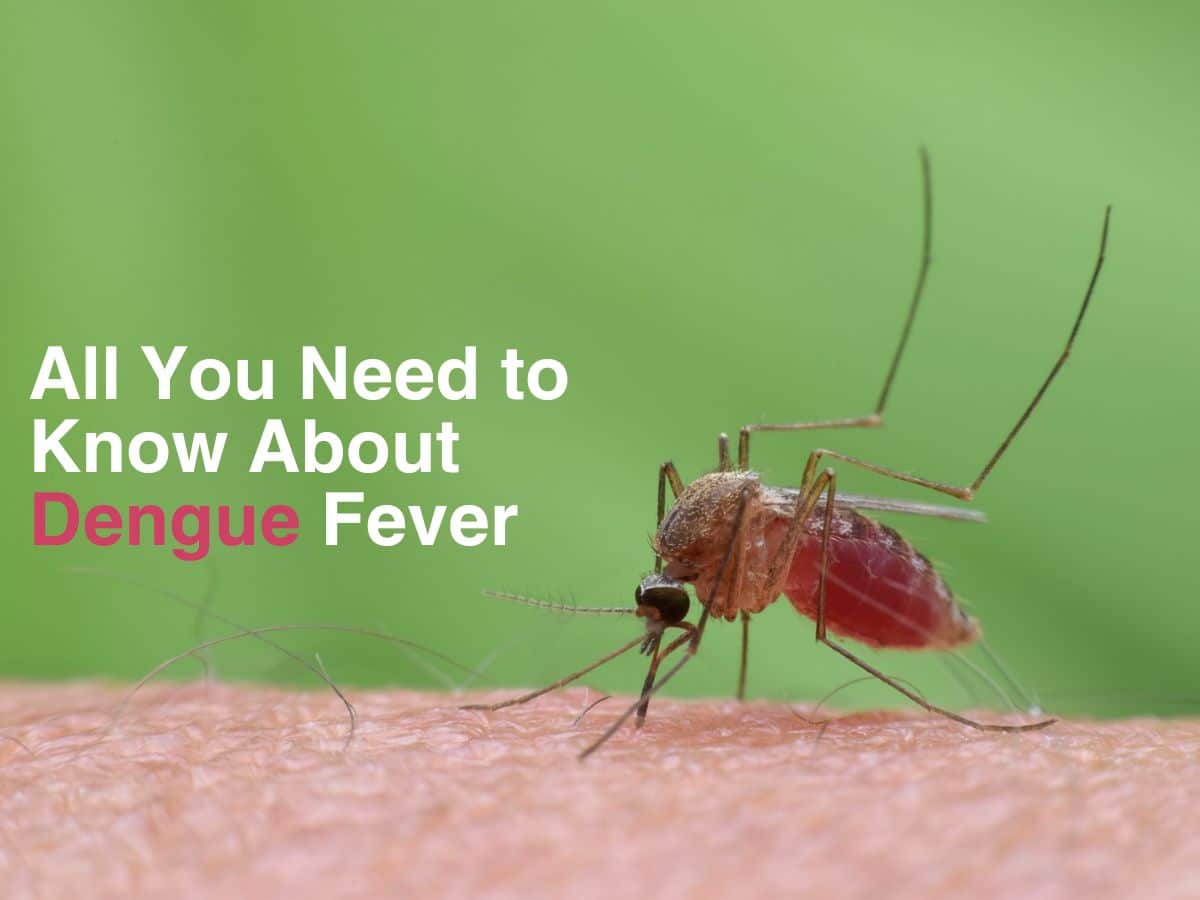
All You Need to Know About Dengue Fever

Dengue fever is caused by female mosquito bites, and you can get affected many times throughout your lifetime. It is caused by a virus which may be of 4 types- dengue 1, 2, 3 and 4 respectively. Most people do not need to get hospitalised, and will recover in about a week or less. If they manage to get infected again, they may have to deal with severe dengue fever. The mosquito in question is Aedes aegypti, and it is easily recognized by the white stripe-like markings present on the body and legs. Symptoms develop about a week or two after getting bitten.
Symptoms Of Dengue Fever
Dengue is also called break bone fever because of intense joint and bone related pains. Some of the common symptoms for first timers include the following bunch of symptoms:
- Very bad headache
- High fever and extreme fatigue
- Severe joint and muscle pain
- Nausea and emesis
- Zero appetite
- Pain behind the eyes
- Super itchy red coloured rashes about 2-5 days after fever
Warning Signs Of Severe Dengue Fever
The symptoms and their magnitude change dramatically if you are affected again. Let us look at the symptoms this time:
- Vomiting very often
- Sharp abdominal pains
- Bleeding gums
- Nosebleed
- Fatigue
- Hematuria or blood in urine and in stools too
- Feeling chilly all the time
- Extreme thirst
Long-Term Effects Of Dengue Fever
Some effects of dengue continue long after you are cured:
- Body pains in general
- Hair fall
- Muscle weakness
- Fatigue
Vaccination Options For Dengue Fever
One vaccine called Dengvaxia ® is available for use, but only in the US. There are no such options available in India. This is surprising and sad, because we have a high disease burden- almost 13 million cases per year, and only increasing. But, a new vaccine is now undergoing phase-3 clinical trials. Let’s hope it comes to market soon!
Impact Of Dengue Fever On Pregnant Women
Drugs are normally not prescribed for dengue unless it is extremely severe, and even then not for pregnant women. Some of the issues pregnant women face include an increase in chances of giving birth prematurely, low birthweight of the infant, or stillbirth. Even after birth, there is almost a 25% possibility of hospitalisation in the first 3 years of the baby’s life. Chances of maternal death are also high (almost 15%).
Conclusion
Dengue is largely preventable if you take a few precautions- like being fully clothed when going out, using mosquito repellent lotions or sprays and a liquid vaporizer at home, and making sure there is no standing still water anywhere nearby for the mosquitoes to breed. The incidence of dengue has increased globally due to soaring temperatures and shorter life cycles of the mosquitoes themselves. Rapid urbanisation and poor civic planning is a major cause for it all. So, staying safe needs to be a priority.
Frequently Asked Questions

Dr. N.L. Varunmai
MBBS, MD (General Medicine)
Consultant General Physician






